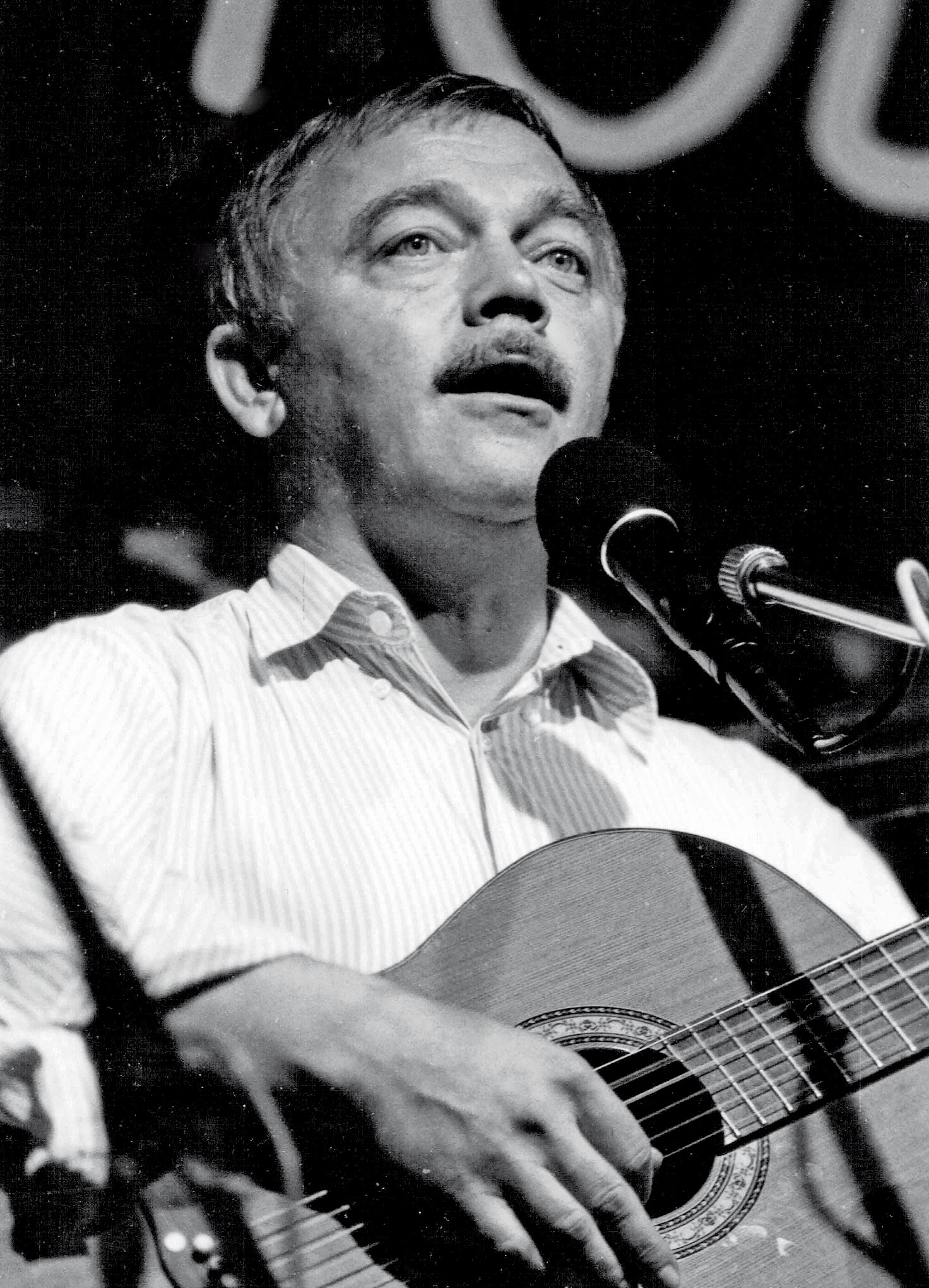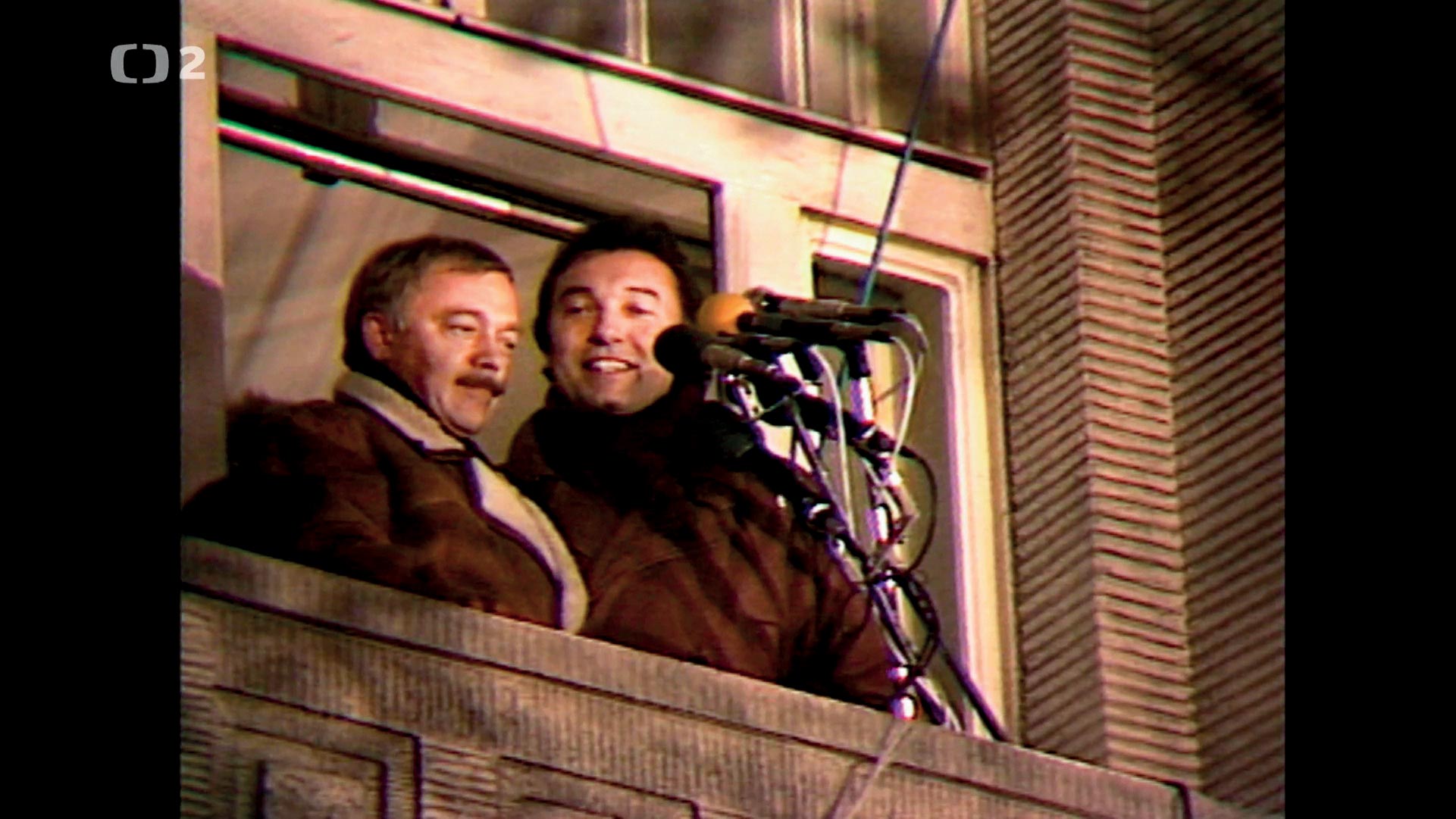The year 2024 is another one of the Years of Czech Music. Aside from a rich itinerary both in the Czech republic and abroad, it brings with it memories of famous musicians and composers, whose lives were influenced by years ending in 4. Among those is the voice of freedom - the poet with a guitar Karel Kryl. While the 3rd of March marked 30 years since his death, on the 12th of April we will commemorate the 80th birthday he didn’t live to see.
His songs, with their importance and poetry, wrote history. They knew how to provoke and their urgency rouses people to this day. The songs - the short, striking, pamphlet-like tunes, as well as the longer poetic and melancholic compositions - he wrote himself. In them, he reminded the totalitarian regime of all its betrayals of the ideals the people of Czechoslovakia once lived with. They reveal the personal stances and opinions of an artist who was forced to leave his country. Karel Kryl wasn’t afraid to express the truth no matter the circumstances, and so he became one of the most significant faces of the Czechoslovak protest song. The legendary song “Bratříčku, zavírej vrátka” (“Brother, close the gate”) symbolized resistance against the occupation of Czechoslovakia by Soviet armies, and the non-democratic regime at the time. During the times of unfreedom and exile, his voice was heard on the waves of the Free Europe radio station, or smuggled recordings.

A visionary as well as a perpetual idealist
Karel Kryl was born on the 12th of April in the Moravian city of Kroměříž, in the family of a book printer. Even as a child, he and his family went through the worst kinds of oppression and repression, accompanied by forced moves and financial troubles. After graduating from high school, he worked in a porcelain factory in Teplice, and moved to Prague in 1967. Alongside his job, he also tried to make it in the world of music. After trying for some time, he successfully hit the charts of the Houpačka (Seesaw) radio show. His first record came out six months after the invasion of the Warsaw Pact armies into Czechoslovakia. The title track “Bratříčku, zavírej vrátka”, his protestsong against the invasion, attained second place in the December of 1968, after Karel Gott’s song “Lady Carneval”. It stayed at the top of the chart until March of 1969, when the show ended. Kryl’s songs surpassed the artistic sphere. They became a political phenomenon with a strong societal reach, which placed him under the scrutiny of the StB (State Security), which attempted to silence him. Utilizing his participation at a festival in the west-German city of Waldeck in September 1969, Karel Kryl asked for political asylum there. He never returned to his homeland for the next 20 years, and the previous regime tried very hard to erase him from people’s memories.
A glimpse of hope
After November 1989, he returned to his homeland for a time. His reasons were his family, and his intention to be of use to the changes happening in Czechoslovakia, and its society. This short man with a guitar and charming singing became a glimpse of hope. When he stood on the stages in Bratislava at the SNP Square, or the sports hall in Pasienky, and the “forbidden” songs were heard once more, it meant the end of the old era. Many people recognized him by voice alone, and welcomed him with thunderous applause. He remained true to his legacy even with his new songs, even though according to the critics, his new creations never surpassed the older ones. After the Velvet revolution, he pilloried the post-November evolution of both politics and the society, namely the separation of Czechoslovakia, which touched him deeply. Broken and disappointed by the developments, Karel Kryl died on the 3rd of March 1994 in Munich. His younger brother Jan Kryl took up the mantle of songwriter after him.

Singing the national anthem with Karel Gott at the Melantrich Palace balcony in December 1989
THE VOICE OF FREEDOM
During his stay in Germany he worked for Radio Free Europe, but stayed true to music as well. In 1971, he recorded a concert version of the “Bratříčku zavírej vrátka” record, and released several other records - Rakovina (Cancer), Maškary (Mummers), Karavana mraků (Caravan of Clouds), or Plaváček (The Floater). His work was forbidden in Czechoslovakia. It was thanks to Radio Free Europe‘s broadcasts, and the smuggled records, that people didn‘t forget about his songs. But that also perpetually kept the secret police on the lookout for him. They not only kept detailed records of Kryl‘s life and work abroad, but also focused on his family, who stayed in the homeland, or on Radio Free Europe itself.
AWARDS
Karel Kryl‘s songwriting is documented by a 1993 musically poetic documentary from director Dušan Rapoš. It also offers the released records Tekuté písky (Quicksand), Monology (Monologues), and the collection of poems “Two halves of the moon”. Karel Kryl was holder of the silver commemorative medal of the Charles university for contributing to the spiritual development and moral support of the nation in memoriam (1994). He was also awarded with the František Kriegl Award (1995) and the Czech Grammy Award (Hall of Fame - 1995), and on the 28th of October 1995, president Václav Havel awarded him the Medal of Merit of the 2nd Grade.